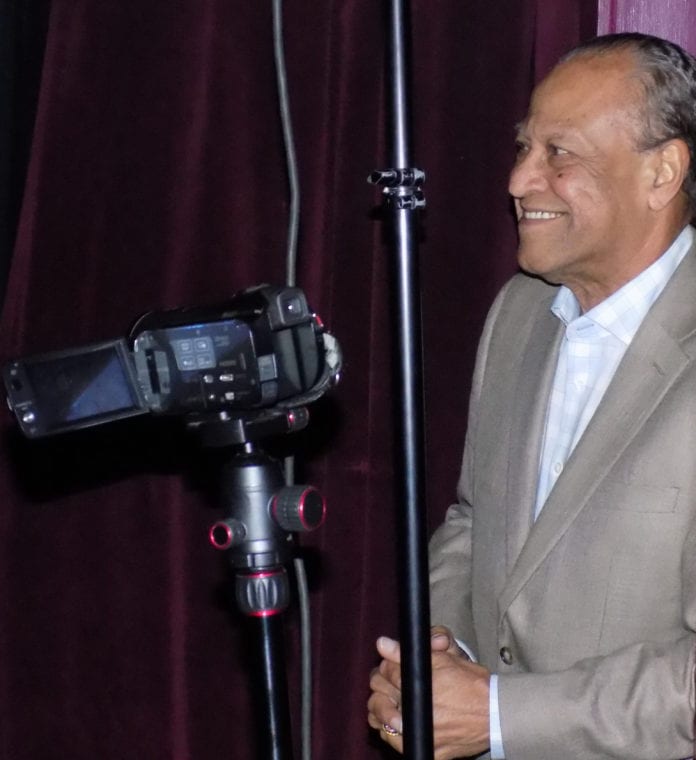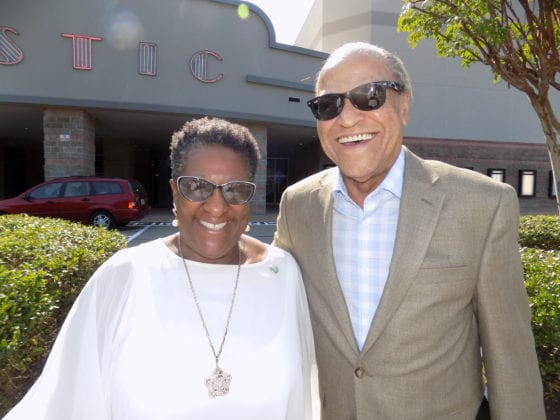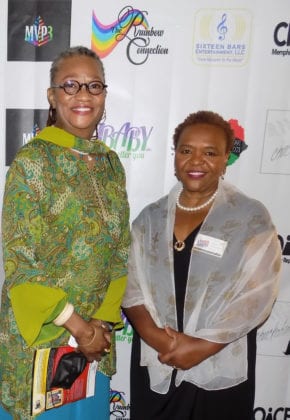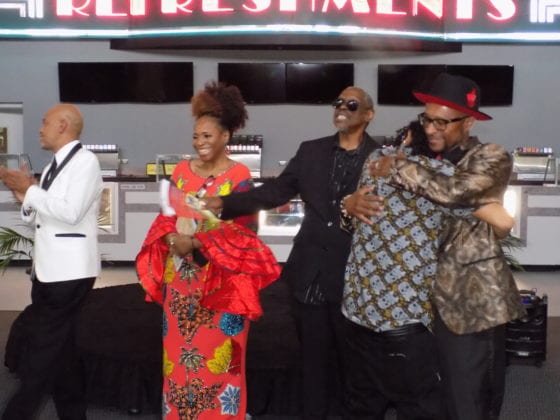It was a story that needed to be told – how the 1991 People’s Convention paved the way for Memphis to elect its first African-American mayor.
“Unbroken: The Story of the 1991 People’s Convention” brought out old friends and original conveners to the screening of a history-making documentary, told through actual footage and interviews of some major players in the event.
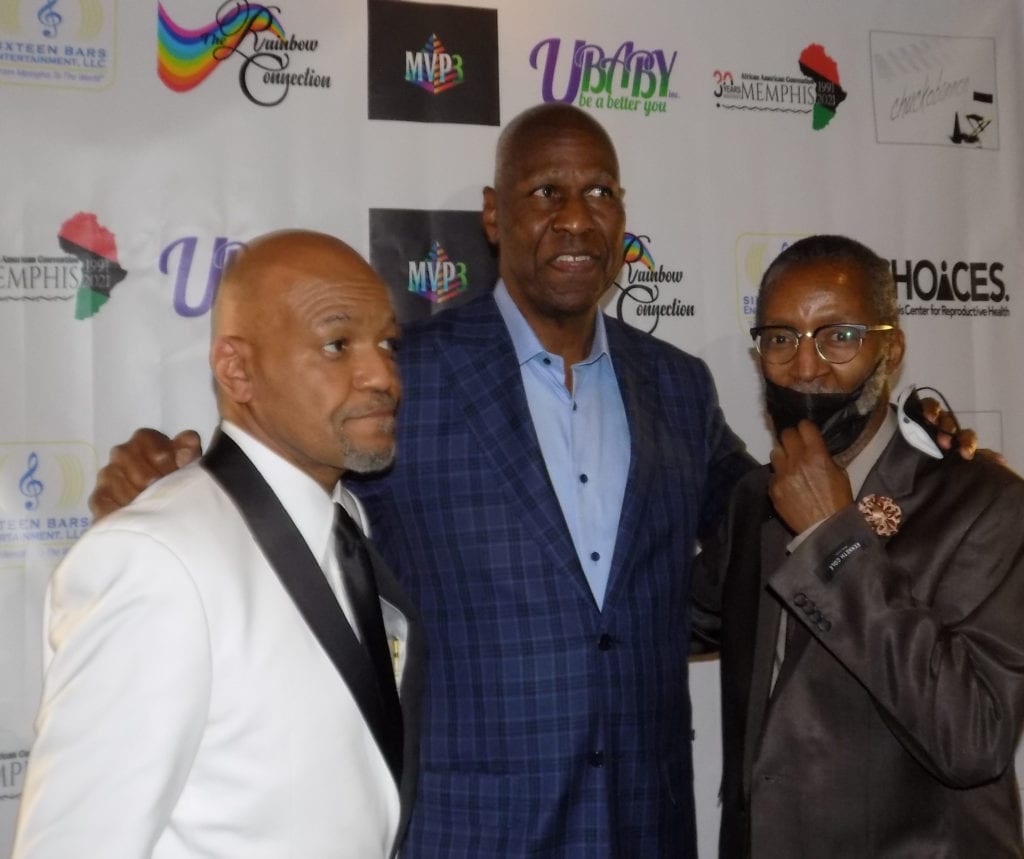
Rainbow Connection executive producer Arthur Robinson, with Dr. Willie W. Herenton, who was the People Convention’s choice for mayor, and film staff member Wiley Henry. (Photo: Tony Jones, INK!/Larry Walker)
Sponsored by 16 Bars Entertainment, a red-carpet caliber showing of “Unbroken” premiered at the MVP Movie Theater, 7051 Malco Crossing, Saturday (July 3).
Rainbow Connection principal Anniece Robinson and film director Chuck O’Bannon made the historic record a reality.
“It was important that what happened back in 1991 was told,” said O’Bannon. “Because had we not told what actually happened at the People’s Convention, those who write the history books get to tell the story. And what is written in history books is not always the truth. This was our story to tell.”
The film event was a culmination of “From Memphis To The World,” a series of activities launched in June to spotlight the opening of 16 Bars Entertainment in Memphis and introduce Chi-Kairo, its lead recording artist from the Virgin Islands.
The entertainment enterprise provided funding to the documentary project and showcased the finished product.
“Dr. Willie Herenton, of course, was chosen as the consensus candidate,” said O’Bannon. “And Dr. Herenton talks about two particular instances when the black community in Memphis united on one accord: When Dr. King was assassinated, and in 1991 during the People’s Convention. I believe that is true.”
Robinson’s husband, Arthur Robinson, took all of the actual footage recorded at the People’s Convention. Robinson ran into the child of an original convener at the convention, and there was a whole conversation about what happened.
“I started to think back on what took place during that convention,” said Robinson. “This documentary is a snapshot in history at a time when there was great polarization. Some people had become discouraged. We had tried to run black candidates for mayor, but there was this runoff that favored the other side. And, there were always too many black candidates that divided the vote. We had to run a consensus candidate everybody could get behind.”
The stage was set in 1988, when the late Dr. Talib-Karim Muhammad, in a class-action lawsuit, challenged at-large elections. Muhammad’s lawsuit was incorporated into a U.S. Justice Department’s lawsuit.
The Justice Department alleged the city’s election process violated provisions of the 1965 Voting Rights Act. U.S. District Judge Jerome Turner mandated a plan “which will eradicate the minority vote dilution.”
Among, the ruling’s impact was the end of runoff elections in mayoral and other citywide races.
If the majority African-American population could just run a consensus candidate, the city would elect a “black mayor,” organizers were sure.
“We were called stupid, people said it would never work,” said Anniece Robinson.
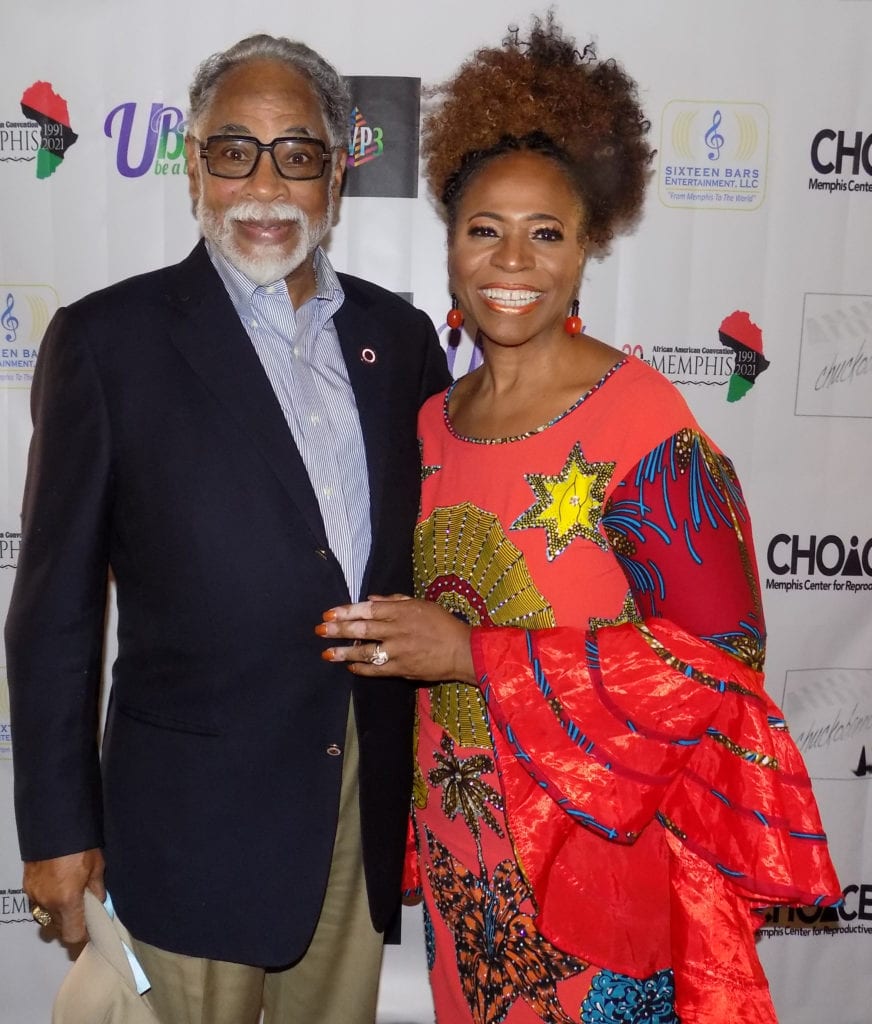
“There were four of us who started out meeting in my back yard — Dedrick “Teddy” Withers, Shep Wilburn, Vernon Ash, and myself. Teddy wanted Shep to be the spokesperson for the convention because he was an insider. But Teddy was the original architect of the People’s Convention.”
Tennessee state Rep. Barbara Cooper was co-chair of the People’s Convention, Robinson recalled. Withers had just lost his bid for mayor in 1987.
Set at the Mid-South Coliseum, despite torrential rain, and prohibitively high insurance requirement, the People’s Convention went on at the appointed time.
“In spite of all the obstacles, 3,500 to 4,000 people showed up for the convention,” said O’Bannon. “As a result, there was a consensus candidate named when it was all said and done. Dr. Herenton ended up winning by 142 votes. If we could get on one accord today, like those conveners did back then, there is nothing we can’t do in the city of Memphis.”
Robinson said future screenings and distribution of the documentary won’t be for some time, until she completes the legal paperwork on the project.
Robinson said she hopes the documentary will inspire modern-day activists to unite in consensus as everyone works to move Memphis forward.



